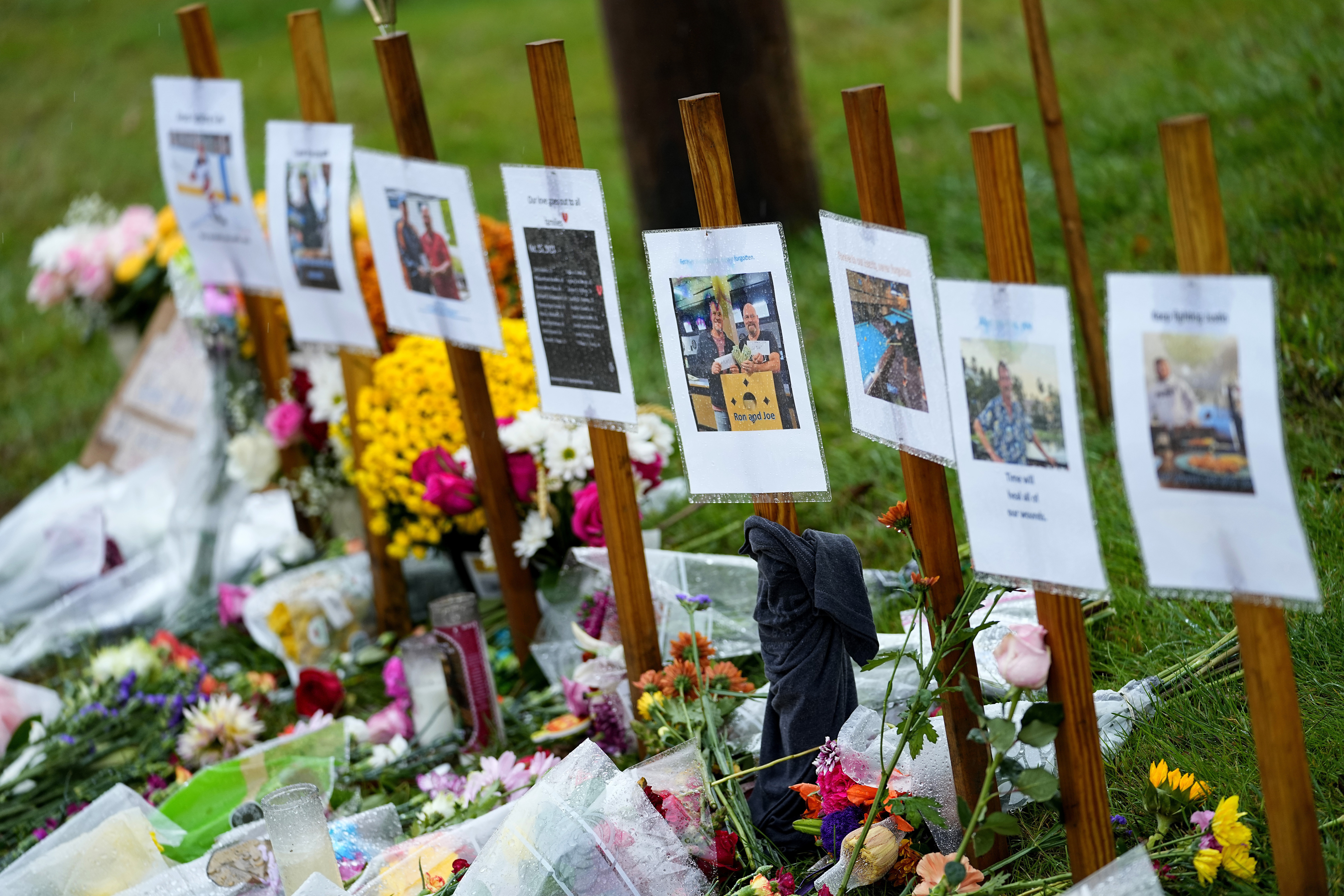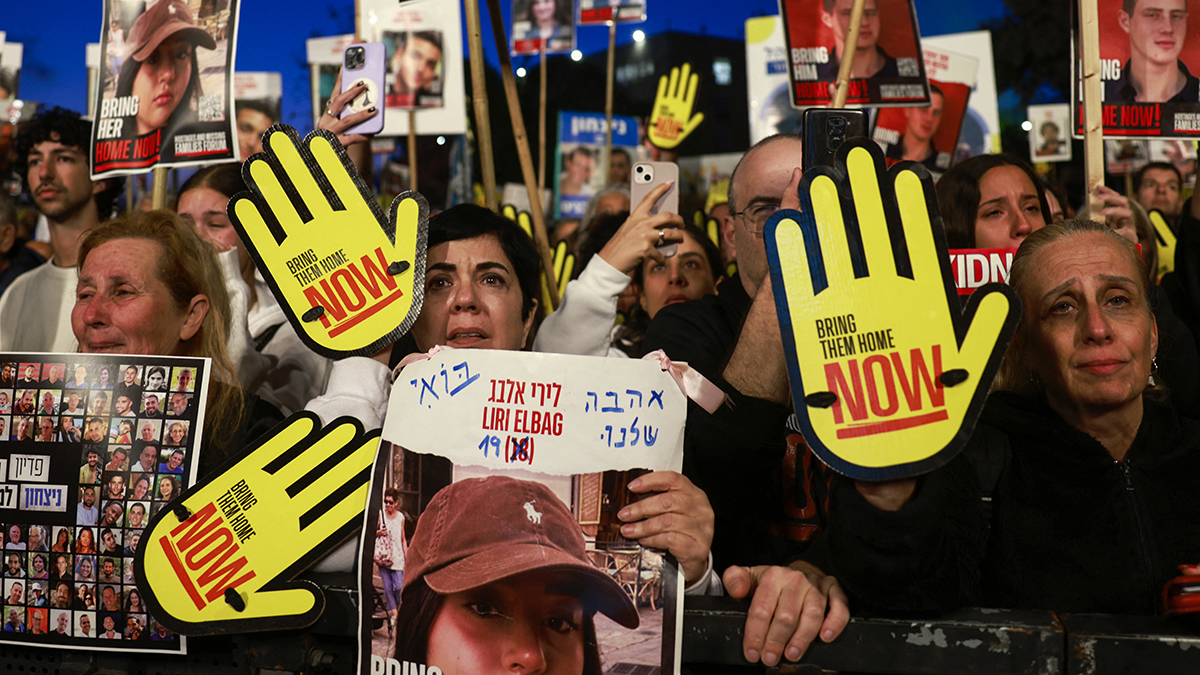Some wanted to play soccer barefoot on the beach with Brazilians, experiencing for themselves those romanticized images they'd seen on TV. Others dreamed of attending meaningful games in the homeland of Pele, soaking up the passion for the game permeating not just the stadiums, but every corner of every neighborhood.
If they could do that, maybe tip back a few caipirinhas, munch on coxinhas, take a dip in the south Atlantic, and cheer on the U.S. national team, what a trip it would be.
Brazil turned out to be the perfect place for the traveling American fan base to come into its own at the World Cup — to gather festively before games on foreign soil and take over arenas during matches.
"Huge party! It was awesome," Miami resident Katie McCrath said of a gathering hosted by the booster club American Outlaws before Monday's tournament opener for the U.S., a 2-1 triumph over Ghana in Natal. "They filled the streets."
They filled a large part of the stadium, too.
"That was one of the really neat things about the first game — hearing the national anthem and it almost feeling like a home game," midfielder Kyle Beckerman said as the U.S. prepared for its next match Sunday against Portugal in Manaus. "Being far away and having all those fans there for us was just an amazing feeling."
South America's largest country is one in which influences from Europe, Africa and the Americas are mixed in a tropical climate and on bountiful land with stunning scenery. That demographic, geographic and cultural cocktail gives Brazil an exotic appeal to travelers worldwide.
U.S. & World
Guests at Brazilian hotels often awake to breakfast spreads of tropical fruit unavailable at home. They curb mid-day hunger with fried dumplings of ground chicken called coxinhas at snack huts by the beach, and wash them down with caipirinhas, fruity cocktails featuring cachaca, a fiery spirit made from sugar cane juice.
Combine all that with Brazil's renowned enthusiasm for "o jogo bonito," or the beautiful game, and the 2014 World Cup becomes a two-for-one bucket-list opportunity for fans across the globe. Americans have seized it in force.
According to FIFA, more than 200,000 tickets for games in Brazil were purchased by U.S. residents. While a chunk of those residents surely have ancestry in soccer-loving countries like Mexico, that figure ranked second among all nations worldwide, behind only the host country.
The crowd in Natal was laced with red, white and blue. Chants of "I believe that we will win," a common U.S. soccer cheer, thundered throughout the arena. The stars and stripes waved in seemingly every section.
"We had heard that there was a ton Americans, so we were anticipating that," American goalkeeper Tim Howard said. "And it was fun for once just to have the upper hand."
Among the fans in Natal was Greg Conley of Boston, who's been to every World Cup since 1990, when he saw the U.S. play in Florence, Italy. Back then, he recalled, Americans in the stands consisted of a smattering of college-age fans who happened to be in Europe, or family and friends of team members.
Excluding 1994, when the World Cup came to the States, Conley said the game in Natal marked "the first time I saw the U.S. fan base dominate — and that's the correct word — a stadium, as well as outside the stadium and the vicinity of the stadium in the hours leading up to the game and after the game."
The American Outlaws use social media to promote pregame gatherings. Katie McCrath went with her husband, Steve, a soccer coach at Barry University. The throng at the pizza place picked for the rally was too thick to get near the door.
"As an American to be there, seeing all those people, all that energy, it was unbelievable," she said.
Former U.S. goalkeeper Kasey Keller, now a soccer analyst for ESPN, said a 2006 World Cup match in Kaiserslautern, Germany, between the U.S. and Italy was the first time he could recall a noticeable pro-American crowd at a World Cup game overseas.
He figured the showing in Brazil would be unprecedented — not simply because soccer's popularity continues to rise in the U.S.
"What limited history (Americans) know of the game, Brazil carries huge weight and it's a country where you can go hang out on the beach," Keller said.
That is precisely what Conley has done. The 50-year-old, who plays recreational soccer back home, made his World Cup base in Olinda, near the host city of Recife, because he hoped to get into a pickup game on the beach.
On Thursday, he waited in the sand behind a net for the better part of an hour, shagging loose balls until he was finally picked to join a team. Afterward, he said he'd experienced the soccer equivalent of playing pickup basketball on an outdoor court in New York City — something he'd done in college.
"One of my main objectives was to play soccer on the beach with locals during the World Cup," Conley said, his feet sore but his face beaming. "It worked out fantastic. I got my jogo bonito experience."



